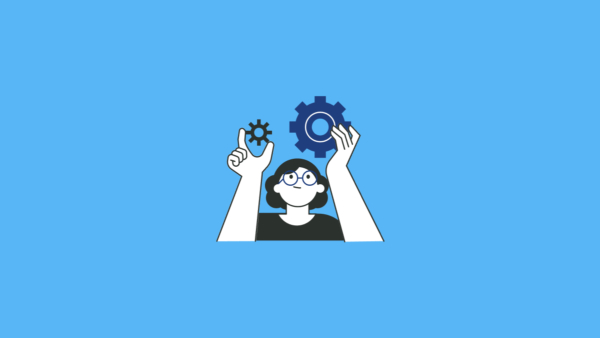Five-Fold Engagement: zyBooks Drive Engineering Student Success
What if a simple change to your homework structure could reduce failing grades by 22% and boost student engagement by 500%? New research from a major public university reveals how zyBooks are transforming engineering education outcomes.
Read the research here.
Key Research Findings
A new ASEE conference paper tracking 345 engineering students across seven semesters in circuit analysis courses reveals the impact of zyBooks. The study compared traditional homework approaches with hybrid models that assign zyBook activities for points.
Key Results
- 22% reduction in D/F grades (from 55% to 43%)
- 27% increase in A/B/C grades (from 45% to 57%)
- Five-fold increase in student engagement time
- Statistically significant improvement in final exam performance
The study maintained consistent variables—same instructor, identical final exams, unchanged course structures— across all semesters to ensure valid comparisons.
The Challenge: High Failure Rates in Engineering Courses
The STEM Retention Dilemma
Engineering faculty understand the statistics: 48% of STEM students leave their programs before completing their degrees. Introductory courses like circuit analysis often serve as gatekeepers, with high failure rates that contribute to students switching majors or leaving college entirely.
Traditional Homework Limitations
Traditional paper-based homework creates barriers to learning:
- Students receive graded work days or weeks after submission, so the class has already moved on by the time they learn about their knowledge gaps
- Few students revisit incorrect problems after homework is returned, so they don’t correct their misconceptions
- Many skip textbook reading, jumping straight to problem-solving, so they miss understanding key concepts that explain the problem solving process
- Learning opportunities are missed due to delayed feedback
The challenge for engineering educators is maintaining academic rigor while improving student success rates.
The Study: Seven Semesters, 345 Students, Clear Results
Researchers at a large public university conducted a comprehensive study comparing traditional homework approaches with hybrid models incorporating zyBook activities. Over seven semesters, they maintained consistent variables—same instructor, identical final exams, unchanged course structures—while varying one key element: whether zyBook activities were assigned for points or merely recommended.
The comparison examined two approaches: some semesters assigned zyBook activities for points as part of the homework grade, while others made the same content available but not required for credit.
The Numbers That Matter: Performance Improvements
Grade Distribution Changes
| Grade | Traditional Approach | zyBook Assigned | Change |
| A | 10.7% | 14.7% | +37% |
| B | 19.8% | 24.5% | +24% |
| C | 14.4% | 17.7% | +23% |
| D | 21.0% | 17.7% | -16% |
| F | 34.2% | 25.5% | -25% |
The Impact
- Students receiving passing grades increased from 45% to 57%
- Students receiving failing grades dropped from 55% to 43%
- Every grade level showed improvement in the expected direction
These results represent a measurable shift in student success rates that impacts retention and program completion.
The Engagement Factor: Why Assignment for Points Makes the Difference
The Critical Difference
When zyBook activities were merely recommended, students averaged just 37-83 minutes per semester with the interactive content. When assigned for points, engagement jumped to 385-410 minutes—a five-fold increase that correlated with improved learning outcomes.
How zyBooks Support Learning
The interactive nature of zyBooks creates advantages over traditional homework:
- Immediate feedback allows students to learn from mistakes in real-time
- Multiple attempts encourage persistence and mastery
- Step-by-step guidance breaks complex concepts into manageable pieces
- Integrated explanations provide help when students need it
Students work through animations and examples before attempting problems, building understanding methodically rather than jumping to homework unprepared. This approach also increases familiarity with the textbook as a study resource.
What This Means for Engineering Education
Student Success Transformation
The research demonstrates that zyBooks, when integrated into course requirements, create measurable improvements without reducing academic rigor or requiring additional class time.
Students who succeed in introductory courses are more likely to complete their degrees. Early success builds confidence, creating a positive cycle that supports performance in advanced coursework.
Faculty and Departmental Benefits
This approach provides practical advantages for institutions:
- Reduced grading burden while maintaining assessment quality
- Data-driven insights into student misconceptions and areas of difficulty
- Improved retention metrics and student satisfaction scores
- Enhanced program outcomes as success rates improve
The hybrid model maintains opportunities for traditional problem-solving assessment while leveraging technology to support student learning more effectively.
Looking Forward: The Path to Better Retention
This research provides engineering departments with evidence that interactive textbooks can improve student outcomes when properly implemented. The hybrid approach leverages the strengths of both traditional and digital methods while addressing their individual limitations. When students succeed in foundational classes like circuit analysis, they develop the confidence and knowledge base needed for advanced coursework, making them more likely to persist in their programs and graduate.
The evidence from 345 students across seven semesters represents substantial research with statistically significant results. The findings suggest that interactive textbooks, when integrated into course grades rather than treated as optional supplements, can meaningfully improve learning outcomes and contribute to addressing the broader challenge of engineering student retention.





